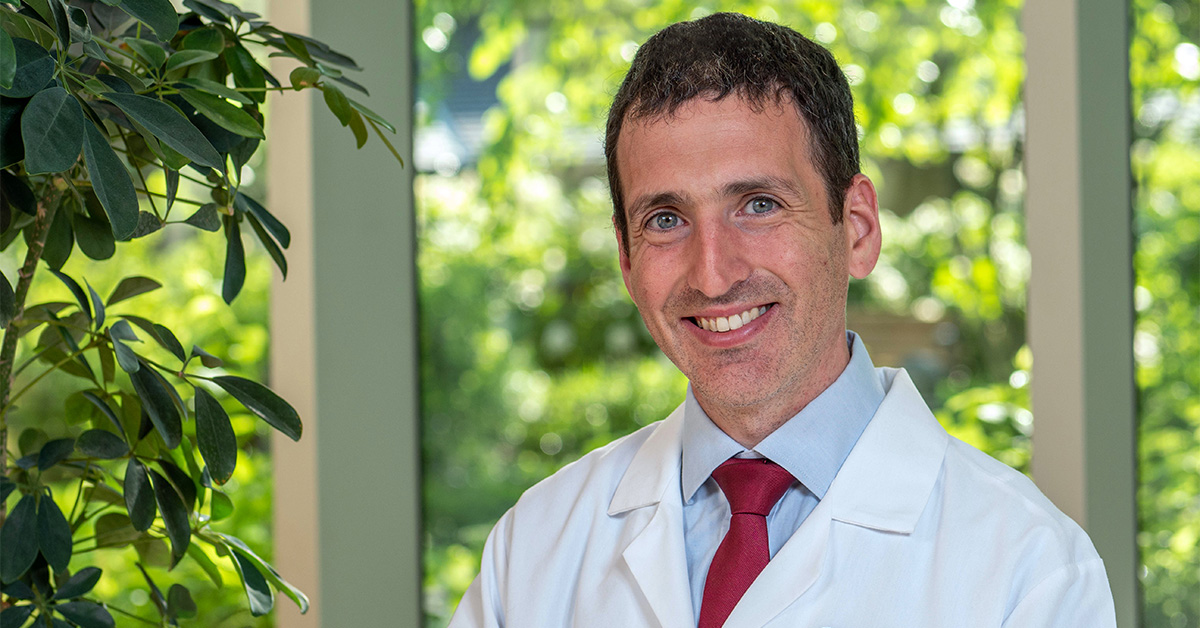
PHILADELPHIA (February 23, 2024) — Prior research has shown that delays in initiating cancer therapy are increasing, and these delays can lead to not only worse outcomes for patients, but also increased psychological distress. However, a new study published by researchers at Fox Chase Cancer Center has found that patients’ worry and fear can also contribute to their intentionally delaying the start of treatment.
“We were struck by how fear came into so many aspects of cancer care,” said Zachary Frosch, MD, MSHP, an Assistant Professor in the Department of Hematology/Oncology and member of the Cancer Prevention and Control Research Program at Fox Chase, the study’s lead author.
“Patients talked about how they or people they know have many different reactions to that fear. Some people really tried to accelerate things, while other patients or providers talked about patients either not returning phone calls or presenting other issues that delayed care.”
These findings came from a qualitative study in which Frosch and his coauthors conducted one-on-one interviews with 22 cancer patients and 12 healthcare providers. The coauthors included Carolyn Fang, PhD, a Professor in the Cancer Prevention and Control Research Program and senior author on the paper, and Richard Bleicher, MD, FACS, a Professor in the Department of Surgical Oncology who has done extensive research in the area of cancer treatment delays.
The questions the researchers asked were designed to gain insight into patients’ and providers’ experiences with treatment delays, opinions on how quickly treatment should commence, and ideas for preventing delays.
Several themes emerged. First, patients felt a strong urgency to begin treatment immediately following their diagnosis, while providers’ opinions on the goal timeframe varied. Both cohorts recognized the anxiety that a new cancer diagnosis provokes, as well as the many logistical factors that go into planning treatment.
However, the providers were slightly more focused on risk stratification and capacity when deciding when to begin treatment, while patients felt more urgency to begin as soon as possible. Part of what drove this urgency was fear, the researchers found.
Yet patients and providers shared that this same fear could manifest as not taking steps to move ahead or as acting in ways that delayed care. Patients expressed fear not only of the cancer worsening while they waited for care, but also of potential side effects, poor outcomes, and financial consequences of their care, which could lead them to delay their own treatment.
Other sources of delays cited in the interviews included logistics, such as insurance authorization and lack of transportation, and social barriers, such as insufficient health literacy and a desire to participate in an upcoming social event before starting treatment.
Finally, the study participants shared suggestions for overcoming the barriers and causes of delay that they had identified. In particular, they expressed a desire for education and anticipatory guidance, especially from peers, to help them process their diagnosis and understand their proposed treatment plan.
“One of the exciting things is that addressing some of these psychological barrier has been more of a challenge, and I think it’s going to be a good challenge to see if we can move the needle on those,” said Frosch.
The paper, “‘Cancer’s a Demon:’ A Qualitative Study of Fear and Multilevel Factors Contributing to Cancer Treatment Delays,” was published in Supportive Care in Cancer, the official journal of the Multinational Association of Supportive Care in Cancer.